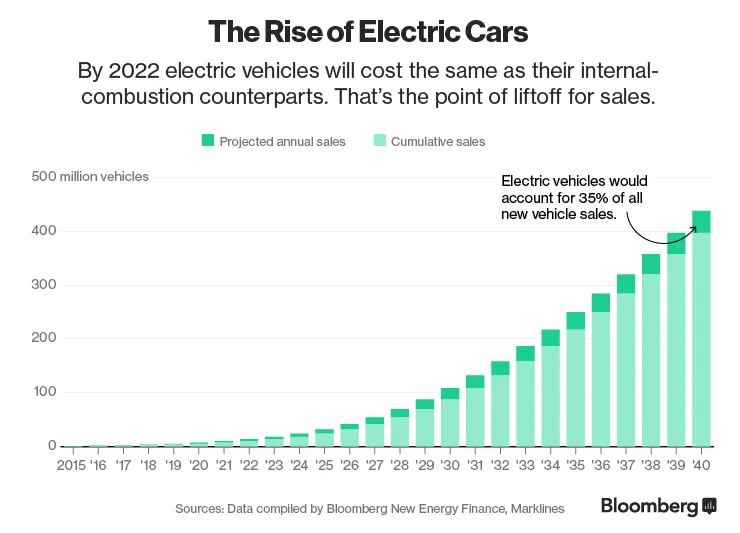Table of Contents
ToggleIntroduction:
What if electric cars became cheaper and more popular just because two countries shook hands? That’s what many people are hoping for after the UK and US signed a new trade deal in May 2025. The deal promises to lower costs, boost electric car sales, and support cleaner energy. But the big question is: Will it really help the EV world, or is it just talk?
Let’s explore what this deal is all about, how it could help electric car companies, and what challenges still stand in the way
What’s in the UK-US EV Trade Deal?
On May 8, 2025, the UK and the United States agreed to lower taxes (called tariffs) on British-made vehicles. Right now, if a UK car company wants to sell cars in the US, they usually pay 27.5% in tariffs. This deal brings that down to just 10%—but only for up to 100,000 cars per year.
This is a big win for British carmakers like Jaguar Land Rover, who want to grow their business in America. It means they can offer their cars at lower prices to American buyers, making them more competitive with Tesla and Ford.
Why This Matters for Electric Cars (EVs)
This deal is even more important for the electric vehicle (EV) sector. Why? Because carmakers in the UK, especially Jaguar, are shifting fully toward electric cars. If their EVs can be sold in the US at lower prices, more Americans might choose to buy them.
Also, this deal removes tariffs on UK-made steel and aluminum. These are the materials used in car manufacturing. That means UK companies can make cars more cheaply, which again helps lower prices for electric vehicles.
So, the trade deal could bring two big changes:
Lower costs for EV production.
Cheaper EV prices in the US market.
Will This Deal Boost Sustainability?
Yes—and not just in the UK or US, but worldwide. The deal supports zero-emission goals, meaning fewer gas-powered cars and more clean energy on the roads. If British EVs become more popular in the US, it will help reduce carbon emissions and air pollution.
Even more interesting: the deal also includes talks about biofuels and other clean energy sources, showing that both governments want to promote sustainability beyond just electric cars.
In short, the trade deal could help fight climate change by:
Encouraging more people to buy EVs
Supporting companies that invest in clean energy
Making sustainable cars more affordable
How Jaguar Land Rover Could Benefit Most
Jaguar Land Rover is one of the UK’s biggest carmakers, and it’s going all-electric by 2025. That means no more new gas or diesel cars. Thanks to the new trade deal, Jaguar can now sell thousands of electric cars to American customers with fewer taxes.
That gives Jaguar a chance to finally compete with Tesla, Rivian, and Lucid Motors in the EV market. It also builds more trust in British-made cars, something that helps both brand reputation and global reach.
What Does This Mean for UK’s Economy?

If the deal works out as planned, it could boost the UK’s economy in a few ways:
More Car Exports: British EVs heading to the US will bring in more money.
More Jobs: Increased production means more workers are needed in UK factories.
Lower Manufacturing Costs: No tariffs on steel and aluminum = cheaper production.
This growth could help smaller car companies too, giving them a chance to expand without the fear of huge US import taxes.
What Do Critics Say?
While the deal sounds good, not everyone is clapping.
Some US carmakers are worried that it gives British companies an unfair advantage. Why? Because American electric cars still face higher costs when entering other markets. Also, with the 100,000-vehicle limit, critics say the deal won’t do much in the big picture.
Other complaints include:
Still paying 10% tariff on each car (not zero).
No help for smaller EV startups in the UK that don’t hit high export numbers.
Lack of clarity on infrastructure sharing like EV charging stations.
So while the deal opens some doors, many believe it’s a small step, not a giant leap.
A Step in the Right Direction?
Even if it’s not perfect, the deal is a good start. It shows that governments are finally treating EVs as a serious part of the future. It also proves that green energy and global cooperation can go hand in hand.
Trade deals like this can:
Encourage more countries to cut EV tariffs
Push automakers to go electric faster
Support climate action goals set by the UN
But of course, it only works if both countries keep working on better policies, and companies take real action.
What Happens Next?
The real test will be in the coming months and years. Here’s what to watch:
Will UK carmakers meet the 100,000-vehicle quota?
Will American buyers choose UK-made EVs over local options?
Will the UK and US expand the deal to remove all tariffs?
Will more jobs and factories open in the UK thanks to rising demand?
If the answer to these is yes, then the deal will have a huge impact. If not, it might just be another promise that fades away.
Conclusion
The UK-US trade deal of 2025 has the potential to transform the electric vehicle industry. It offers lower costs, better access to the US market, and a push toward sustainability. But with a few limits and lots of questions still unanswered, only time will tell if this deal is a real game-changer or just another political move.
I’m Waqas, an electric vehicle enthusiast and tech writer with over 6 years of experience covering the EV industry. I write in-depth articles, comparisons, and reviews to help readers understand the fast-evolving world of electric mobility. From battery technology to EV launches and charging trends, I aim to make complex EV topics simple, engaging, and informative for everyday drivers and curious readers alike.





